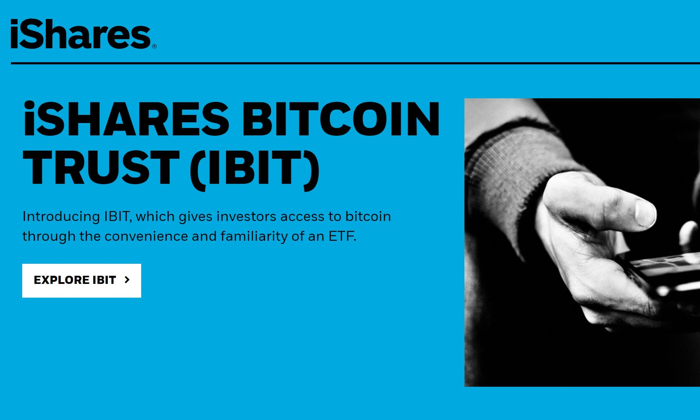Crypto asset registration is becoming a crucial topic in the digital finance landscape, especially as the US Securities and Exchange Commission (SEC) ramps up its oversight of cryptocurrencies and digital securities. In a recent update, the SEC provided new guidance outlining how federal securities laws apply to crypto securities, helping firms understand their obligations under the Securities Act. This guidance covers everything from token disclosures to digital asset reporting, ensuring companies clearly communicate their business operations and financial strategies surrounding their blockchain projects. As the SEC’s approach evolves, navigating these regulations not only assists in compliance but also enhances transparency for potential investors. With increasing pressures to align with securities frameworks, effective crypto asset registration can significantly affect the credibility and success of digital offerings in this rapidly expanding market.
The registration of digital currencies and blockchain tokens is gaining prominence as regulatory bodies refine their stances on these emerging financial instruments. With the SEC’s latest directives, entities navigating the landscape of crypto fundraising now have clearer frameworks to adhere to, particularly regarding disclosures and risk assessments related to digital assets. Companies launching token offerings must now focus on compliance with existing securities laws, ensuring that their operations and token functionalities are transparently outlined. Such developments also prompt a deeper understanding of electronic assets in investor communications, thereby establishing trust and legality within this uncharted territory. As the dynamics of tokenized finance evolve, fostering a robust environment for digital asset registration will play a pivotal role in shaping the future of investment in this sector.
Understanding SEC Crypto Guidance
In April 2023, the U.S. Securities and Exchange Commission (SEC) released crucial guidance targeting crypto-related securities under the existing federal securities laws. This guidance aims to harmonize the approach for companies looking to launch crypto assets by clarifying how these entities should report their operations. The guidance emphasizes the need for transparency in disclosures regarding the nature of the tokens, their governance frameworks, and technical specifications. As crypto securities often blur the lines of traditional asset classes, adherence to these guidelines ensures firms adequately inform potential investors about the risks involved and the operational mechanics of the digital assets being offered.
Furthermore, this new guidance from the SEC serves to align the disclosure practices of crypto market participants with those expected of traditional securities offerings, thus streamlining the regulatory process. By providing a structured outline of information that must be included in token disclosures, companies can better manage expectations and foster investor confidence. The SEC’s latest announcement marks a significant pivot towards a more approachable regulatory environment, indicating a willingness to work with innovators in the blockchain space while ensuring compliance with the Securities Act and protecting investors from misleading practices.
Crypto Asset Registration Essentials
Crypto asset registration is a critical step for any business looking to operate within the bounds of the law. The SEC’s guidance includes vital information regarding the registration process under the Securities Act of 1933 and the Securities Exchange Act of 1934. Companies are directed to utilize specific forms, such as Form S-1 for public offerings and Form 1-A for Regulation A exemptions, to detail their project’s scope, milestones, and strategic objectives. This process ensures that potential investors are presented with a comprehensive overview of the token’s purpose, projected timeline, and the underlying technology.
Moreover, the SEC emphasizes that companies must not only provide detailed descriptions of their crypto assets but also the underlying business models that support them. This means that entities must outline their revenue strategies, the use of tokens within their ecosystem, and how these factors correlate with investor returns. The focus on transparency in crypto asset registration is intended to minimize uncertainties within the market, leading to more informed trading decisions by investors. SEC guidance thus pushes for greater responsibility among crypto firms to safeguard the integrity of the market through clear and accurate communication.
Optimizing Token Disclosures for Investors
The SEC has laid out specific expectations around token disclosures that are vital to the understanding of potential investors. Firms are required to disclose all relevant risks associated with investing in crypto assets, including volatility and legal classifications which may impact asset liquidity. The guidance encourages companies to detail dependencies on third-party blockchains or networks which may affect the performance of the tokens. By providing a transparent overview of these risks, companies can aim to build trust and accountability in the rapidly evolving digital landscape.
Moreover, the importance of clearly communicating the rights associated with tokens, such as voting and profit-sharing mechanisms, cannot be overstated. These disclosures not only inform investors about their rights but also help in distinguishing securities from utility tokens within the regulatory framework. By adhering to these disclosure requirements, crypto firms can navigate the complexities of securities laws while fostering a transparent relationship with their investors. In a landscape where market trust is paramount, detailed and honest disclosures become essential in mitigating potential upheavals caused by misinformation.
Navigating the SEC’s Disclosure Requirements
The SEC’s updated guidance underscores the importance of robust disclosure requirements for crypto securities. Companies looking to maximize investor confidence must adhere to clear reporting standards, particularly concerning the technological frameworks and governance structures underlying their tokens. This may involve describing how tokens are created, used, and tracked, ensuring that details about token behavior and smart contract governance are readily accessible to investors.
Additionally, firms should be prepared to disclose not only the financial aspects of their tokens but also the operational procedures related to token transfers and any associated fees. By aligning their disclosures with SEC expectations, firms can enhance their regulatory posture and promote an environment of trust among investors. Importantly, this guidance serves as a reference point for crypto-related entities, helping them navigate the intricate terrain of crypto securities and digital asset reporting while complying with the Securities Act.
The Role of Governance in Crypto Asset Offerings
Governance is a critical element in the design and functionality of crypto assets, and the SEC’s guidance highlights the need for clear communication of governance structures. Companies must outline how decisions are made within their token ecosystems, including any token-holder rights that may influence project directions. This transparency is key in helping investors understand their potential influence and the terms under which they hold their assets.
Moreover, defining governance frameworks not only fosters accountability but also reduces the ambiguity surrounding token offerings. SEC guidance urges firms to disclose technical specifications of their governance models clearly, whether they rely on decentralized mechanisms or centralized control. By laying out these details, companies can support a more informed investment process and enhance their credibility in the market, significantly contributing to the overall stability of the blockchain ecosystem.
Anticipating Future SEC Regulations
While the SEC’s recent guidance does not introduce new regulations per se, it certainly lays the groundwork for future developments in the crypto regulatory landscape. Companies must be vigilant and prepared for the possibility of evolving requirements as the SEC continues to refine its approach to digital assets. By proactively adopting transparency and compliance best practices, firms can better position themselves for ongoing changes in regulatory expectations.
In this environment of increasing scrutiny and potential regulatory shifts, staying informed about SEC activities and emerging trends in crypto asset registration is crucial. Firms that anticipate and adapt to these changes not only ensure compliance but also enhance their operational resilience. As the tokenization of assets continues to grow, keeping abreast of regulatory updates will be paramount for staying compliant and maintaining investor trust in the digital economy.
The Impact of SEC Enforcement Actions
The SEC’s enforcement actions have significant implications for the crypto market, acting as a deterrent for firms that may attempt to circumvent registration and disclosure requirements. These actions serve as important reminders that compliance with securities laws is non-negotiable, promoting fairness and transparency in the market. Firms need to understand the consequences of non-compliance, which can include hefty fines and reputational damage.
As enforcement actions become more prevalent, it will be essential for crypto firms to adopt comprehensive compliance strategies. This includes conducting regular audits of their token offerings and ensuring that all marketing materials are aligned with SEC requirements. By fostering a culture of compliance, firms can not only avoid regulatory pitfalls but also contribute to a more stable and trustworthy market for all participants.
Building Investor Trust in Crypto Assets
Building and maintaining investor trust is crucial for the long-term viability of crypto assets. As more companies enter the blockchain space, the importance of transparency, accountability, and robust communication becomes ever more significant. The SEC’s guidance highlights key strategies that companies can use to foster this trust, primarily through comprehensive token disclosures and adherence to regulatory frameworks.
Furthermore, establishing trust also involves educating investors about the nature of crypto assets and addressing common misconceptions. By openly sharing information on how tokens are designed, their purpose, and the risks involved, firms can cultivate a more engaged and informed investor base. This proactive approach will not only enhance credibility in the eyes of investors but also contribute to the overall growth of the crypto ecosystem.
The Future of Digital Asset Reporting
Digital asset reporting is poised to evolve dramatically in response to the increasing regulatory scrutiny from bodies like the SEC. As the crypto market continues to grow, the demand for standardized reporting practices will become more pronounced. Companies will need to adapt their reporting frameworks to reflect not only compliance with current regulations but also to meet investor expectations for clarity and reliability.
This shift towards standardized digital asset reporting will likely involve the development of best practices that encapsulate key elements of SEC guidance, such as comprehensive disclosures on tokenomics, governance, and operational metrics. Firms that proactively engage in this area can expect to gain a competitive edge in the marketplace, attracting investors who are seeking transparency and assurance in their crypto investments. The road ahead will require a commitment to ongoing adaptation as digital assets evolve and regulatory landscapes shift.
Frequently Asked Questions
What is the SEC’s guidance on crypto asset registration?
The SEC’s guidance on crypto asset registration, issued on April 10, outlines how federal securities laws apply to the registration and offering of crypto-related securities. It aims to assist firms in complying with the Securities Act by providing clear expectations for filing registration forms and disclosing essential information about digital assets.
How do the Securities Act and SEC guidance affect token disclosures?
The Securities Act of 1933 requires comprehensive disclosures about crypto securities. The SEC guidance emphasizes that companies must clearly explain token functionalities, governance structures, and associated risks, aligning these disclosures with promotional materials such as white papers.
What types of registration forms are required under SEC guidance for crypto assets?
Under the SEC’s guidance, companies may need to file various registration forms, including Form S-1 for public offerings, Form 10 for reporting companies, Form 20-F for foreign issuers, and Form 1-A for Regulation A exemptions, depending on their business model and offering structure.
What financial and operational disclosures does the SEC expect for crypto asset registration?
The SEC expects entities to disclose their revenue strategies, project milestones, token functionalities, development timelines, and funding sources. These disclosures should encompass risks such as token volatility, liquidity, and any dependencies on third-party networks.
Are there specific legal classifications for crypto securities according to the SEC’s guidance?
Yes, the SEC’s guidance emphasizes that businesses must clarify the legal classification of their tokens as securities and outline associated voting rights, profit-sharing mechanisms, and any redemption procedures to ensure compliance with federal securities laws.
What should companies disclose about their smart contracts during the crypto asset registration process?
Companies must file the code governing their smart contracts as an exhibit with their registration, including details on how token behaviors are managed, any updates to the contracts, and the mechanics of token ownership tracking.
How should firms describe token ownership and transfer processes?
Firms should detail how ownership of tokens is tracked, the tools needed to facilitate transfers, and any associated fees. This transparency is crucial for compliance with SEC disclosure requirements prior to crypto asset registration.
What best practices does the SEC suggest for filing crypto-related documents?
The SEC suggests that companies ensure alignment between descriptions in their filings and promotional content, carefully outline investment risks, and follow established accounting standards for financial disclosures in their crypto asset registration documents.
| Key Points | |
|---|---|
| Guidance Release Date: April 10, 2023 | New SEC guidance on crypto asset registrations and disclosures. |
| Applicable Laws | Securities Act of 1933 and Securities Exchange Act of 1934 |
| Target Audience | Companies launching tokens or operating on blockchain platforms. |
| Key Filings | Form S-1, Form 10, Form 20-F, Form 1-A |
| Disclosure Expectations | Investment risks, token volatility, liquidity, and governance structures. |
| Milestones and Development | Outline expected timelines, funding sources, and project updates. |
| Token Functionality | Describe transaction roles, governance rights, and access to services. |
| Smart Contracts | Govern token behavior; required to file governing code. |
| Financial Disclosure | Follow established accounting standards; consult SEC if needed. |
Summary
Crypto asset registration is becoming increasingly structured under the new guidance from the SEC. The comprehensive detailing of expectations for collaboration between regulatory frameworks and crypto projects signifies a pivotal shift towards clarity in compliance. By setting forth clear guidelines for disclosures and reporting requirements, the SEC aims to foster transparency and reassure investors in the evolving landscape of digital assets. As entities prepare to navigate these regulations, understanding the SEC’s directives will be crucial for achieving successful crypto asset registration. This guidance not only outlines what is required but also reflects a growing acceptance and integration of digital assets into the broader financial market.
Crypto asset registration has emerged as a critical topic following the recent guidance from the SEC, which clarifies the application of federal securities laws to digital assets. As the cryptocurrency landscape evolves, companies launching crypto securities must now consider comprehensive token disclosures to comply with the Securities Act and ensure proper digital asset reporting. This SEC overview sheds light on essential filing expectations, encouraging clearer communication regarding business operations and financial practices. With an emphasis on transparency, firms are urged to detail the function and governance of their tokens, which is vital for attracting investor confidence. In this environment of enhanced regulation, navigating the complexities of crypto asset registration has never been more essential for companies aiming to thrive in the blockchain economy.
The concept of digital asset compliance has taken center stage as regulatory bodies like the SEC introduce frameworks for crypto securities oversight. Registration of these virtual currencies, commonly referred to as tokens, now mandates thorough reporting practices that align with traditional securities regulations. The recent SEC directives not only highlight the importance of clear token disclosures but also foster a more secure investment environment by insisting on clarity regarding user rights and specific functionalities. With the rise of blockchain technology, understanding the nuances of sharing detailed accounts of asset management and operational governance has become imperative for firms wishing to participate in the burgeoning digital economy. As the landscape shifts, adopting effective strategies for digital asset registration will significantly influence the success of token offerings.















